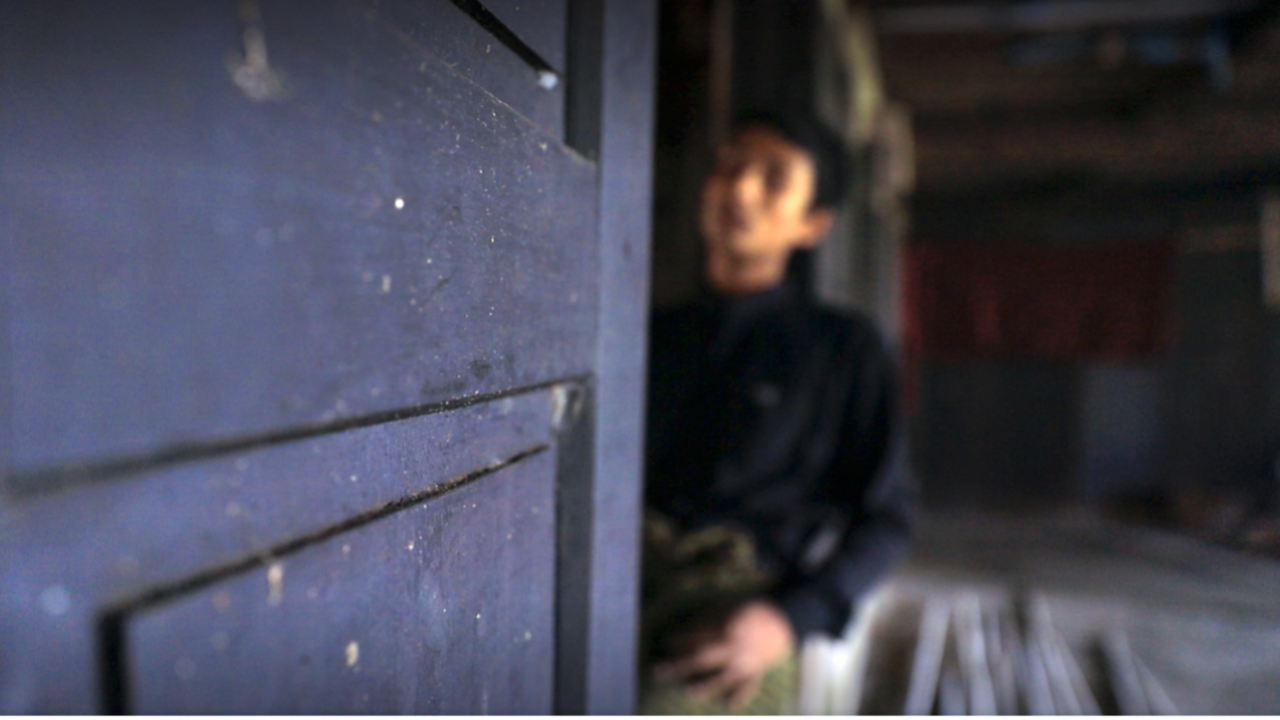16-year-old Aung* rescued from forced labor on Myanmar fishing boat
Labor Trafficking
Back-to-back crisis
A year after the military seized control of Myanmar, the country is facing serious humanitarian crisis and the COVID-19 pandemic is also dealing a severe blow to the country’s economy.
Aung’s parents did not have regular jobs. They used to sell snacks along the bank of Inya Lake, a popular recreation area but due to COVID-19 restrictions, they couldn’t continue their livelihood. They also work on betel and chilli farms but only earned an average of 150000 Kyats (80 USD) per month. His elder sister used to work at a foam factory, but she became unemployed when the factory closed in January 2022. His brother works in a construction company — but their operations have been unstable even before the pandemic. Even working together, Aung’s family makes less than a daily minimum wage.
“COVID-19 made our situation worse. One day, I decided to look for a job to support my family,” recalls Aung*. He felt he has no choice but to work to help his family survive.
According to UN reports, the pandemic wreaks havoc on family incomes, and with only limited support, many children could resort to child labor.¹ As poverty rises, schools are closed or suspended, and children are pushed into the workforce.
Together with his friends, Aung went to his relatives to search for work. They attempted to apply in a quarry operation but didn’t get the job.
The false promise
A broker approached Aung and his friends and promised a good-paying job.
“We trusted him easily. Without any doubt, we went with him,” says Aung.
They arrived at Twantay township where they met another three brokers. The recruiter took them to Thamargone motorcycle taxi station in Hlaing Thar Yar where they met another broker named U Ashay Gyi, who offered a job of sorting fish only. Aung didn’t hesitate to take the job because he thought the work was manageable for him.
The recruiters then took Aung and his friends to Pyapon, where they spent the night in a small hut behind a food stall. The following day, they were brought to a port in Pyapon.
The fishing sector is vital in sustaining Myanmar’s economy, but it has become a challenge when the country enters a period of unprecedented political and economic transition. Pyapon is the main port for raft fishing in the Ayeyawady region, famous for the quality of the fish paste. Hundreds of raft operators at Pyapon own more than a thousand rafts and employ hundreds of thousand workers, including those who work offshore. The fishing season starts in the months of July, and August and rests during April and May.
While Pyapon provides good quality fish even for exports, trafficking cases are rampant. Despite COVID-19 restrictions, traffickers use illegal ways and channels to transport victims to work for fishing businesses.
“Some people are taking advantage of those who face economic hardship. There have been increasing incidences of trafficking and forced labor and children are also becoming vulnerable,” says Naw Emerald San Minn, Field Office Director, IJM Myanmar.
Unfortunately, Aung was recruited to work on a fishing raft under false pretenses and abusive working conditions. He was forced to work for more than 12 hours per day, and he did not receive any wages. He was getting only two hours of sleep even when he feels tired or sick. The recruiter also lied about his age to be allowed to work. Although he knows how to swim, Aung felt scared that he might not have the chance to see his family again.
Worried that his son was missing, Aung’s mother reported to a local NGO about Aung’s whereabouts. The local NGO then reported the situation to the Anti-Trafficking Task Force (ATTF). The police authorities took immediate action, and Aung was successfully rescued from the fishing boat.
“I’m thankful to have my son back. We do not want other parents to go through the same feelings we had when our child disappeared,” says Aung’s mother.
Going back to playing soccer
The local NGO contacted IJM in Myanmar for legal and aftercare support.
Aung was taken to a safe shelter for counseling. The family filed a case against the recruiters, and IJM supports them with the case.
He is happily back in school with his classmates and friends, regaining his strength, playing, and learning to smile again.
“I learned not to trust others easily and we need to protect ourselves from bad people,” says Aung
His dream is to become a famous soccer player for the Myanmar National Soccer League. He hopes to support his family after he finishes his studies.
Amidst ongoing unrest in Myanmar, IJM is working with the government, local and international partners to protect and empower Myanmar workers along high-risk recruiting corridors, coordinating closely with IJM’s integrated programs throughout the Asia Pacific region.
*A pseudonym
¹ ILO and UNICEF. (2020, June 15). COVID-19 May Push Millions More Children into Child Labour. Retrieved February 9, 2022, from https://www.unicef.org/philipp....